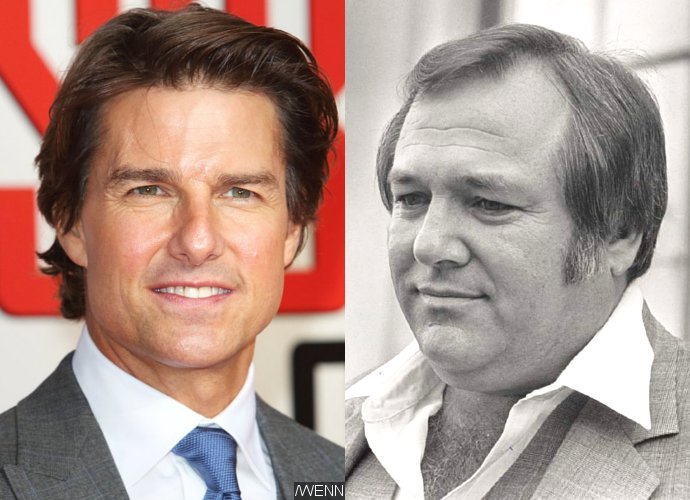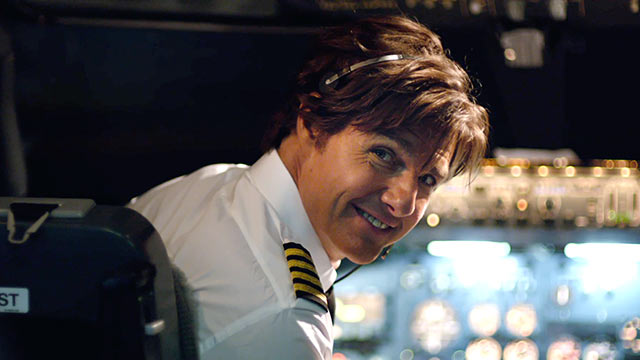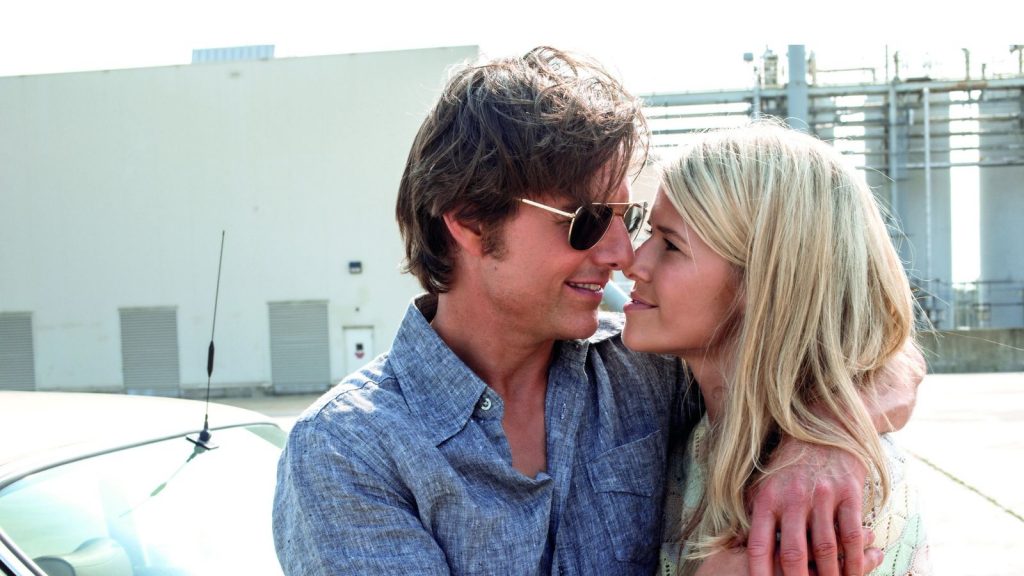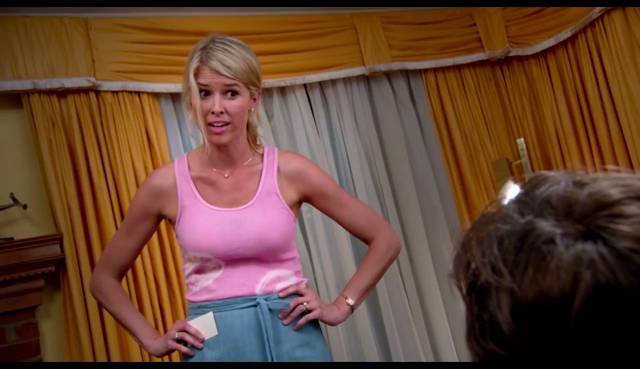American Made – Film Review
Reviewed by Damien Straker on the 28th of August 2017
Universal presents a film by Doug Liman
Produced by Doug Davison, Brian Grazer, Ron Howard, Brian Oliver, Kim Roth and Tyler Thompson
Written by Gary Spinelli
Starring Tom Cruise, Sarah Wright, Domhnall Gleeson and Caleb Landry Jones
Music by Christophe Beck
Cinematography César Charlone
Edited by Saar Klein, Andrew Mondshein and Dylan Tichenor
Running Time: 115 minutes
Rating: MA15+
Release Date: the 24th of August 2017
The script for American Made has failed to overcome the film’s turbulent production. It is the convoluted story of Barry Seal, a talented pilot who in the late 1970s and the 1980s was employed to work for the CIA to take photographs of the communist regimes in South America; simultaneously, he also secretly worked for the Medellin Cartel in Colombia for gangsters such as Pablo Escobar to help smuggle drugs. Starring Tom Cruise and directed by Doug Liman, the film outlines the timeline of Barry Seal’s deception but doesn’t delve into the heads of its major and minor players. In attempting to squeeze several years of chaos into its narrative, the impersonal nature dilutes any sustained conflict between the characters.
The development of American Made was troubled in many ways. The film required reshoots and additional photography, and faced several cases of litigation. In 2015, it was reported that the family of Barry Seal was suing Universal Studios for inaccuracies in the script. Admittedly, there’s no follow-up information about this case and whether it was resolved. Additionally, an aircraft crashed during filming, killing two people including a stuntman and a pilot; their families are now suing the film’s production companies as well as each other! Questions of authenticity are also pertinent while watching the film, starting with the lead casting. Tom Cruise in no way resembles Barry Seal. Comparing their physicality is the stuff of apples and oranges. Some websites cite Barry Seal as weighing as much as 300 pounds!

Similarly, both Tom Cruise and the weak script fail to characterise Barry Seal with a personality separable from the actor’s most overused traits. All too predictably, Cruise imagines Barry as Tom Cruise. Barry’s traits are therefore limited to a flashy smile and a cocky ‘It’s okay, I’ve got this’ attitude. Not that this clarifies the film’s opinion of him either because the story is told from Barry’s tape recording of the events. Is he a bumbler, greedy or an opportunist jumping ahead of the pack? Unfortunately, the answer is a bit of everything. No one in American Made is confidently drawn, including Barry’s rather unextraordinary economic circumstances. He’s bored and tired from his jobs and therefore entirely motivated by money. Facing incrimination from smuggling cigars early on doesn’t help, but Barry is apparently the type of character willing to pursue any opportunity thrown his way, which diminishes his inner moral conflict.

His wife Lucy (Sarah Wright) is not a strong emotional counterpoint either. In one ridiculous scene, Barry comes home in the middle of the night, his face is bruised and he’s missing a tooth from a brief prison stint, and he tells Lucy that the whole family must pack up everything and leave together. The dutifulness of Lucy here, and angered only once before falling in love with the amount of money Barry is making and their new capitalist lifestyle, is inexplicable. The film doesn’t give her a voice strong enough to critique Barry’s actions. She only wants to avoid working in a KFC restaurant again. In another crucial scene, Barry reveals to her that he’s working for the CIA, but the film cuts after her reaction shot, merely treating her look of disbelief as a punchline.

There’s no geography for the side players either in the script. There’s a sketchy subplot dropped into the middle of the film where Lucy’s brother JB (Caleb Landry Jones) visits and starts stealing money from Barry. This adds little emotional heft as JB is painted as a gross caricature and although his fate surprises in the moment it doesn’t draw much emotional pain from the other characters or the audience. There are other personalities in Barry’s way but none of them are memorable. Monty Schafer (Domhnall Gleeson) is a CIA agent who delegates assignments to Barry. His first scene, accusing Barry of criminal activity in the middle of a bar, is an implausible start, and we never really know much about this character by the end. The Colombians bring more edge but aren’t fully developed, including Escobar who’s treated as a footnote.

Ron Howard was originally set to direct the movie before Doug Liman joined. Liman has made decent films such as the first Bourne episode and the political drama Fair Game, along with lesser works such as Edge of Tomorrow (2015) in which Cruise starred. This one falls in the middle of Liman’s spectrum. It’s an interesting story with an anti-hero working all sides and some of the humour lands, but Liman has pitched it entirely as an action-comedy romp rather than a weighty, memorable drama. There were some laughs at the screening, which highlights the general craziness and ridiculousness of the situations pouring through; however, it would have been a more complete and mature film if Liman slowed its trajectory to deepen the characters and had shot it in a less distracting way than the needlessly wobbly handheld camerawork employed here.

Both rhythmically and stylistically, the film utilises the worn-out Scorsese-esque template where a voice over, freeze-frames and intercuts, ala Goodfellas (1991) and Casino (1995), tell a story about how a money-making scheme sprawled into an empire before the inevitable downfall of the kingdom. Last year, the underwhelming arms dealer movie War Dogs pasted the same stylistic techniques and inspirations over a similar narrative type. It’s also becoming ever so slightly skin-crawling to ask whether films like American Made, and War Dogs are purposely designed as black comedies to soften the morally dubious actions of their protagonists.

Apparently drugs and high-powered firearms are just part of a light-hearted boys’ game when there’s money to be made. One of the better films I’ve watched on the subject matter of the Contras and the CIA recently is the movie Kill the Messenger (2014), which explored the journalistic investigation tying the Reagan administration to the drug trafficking in San Francisco—it’s a damaging angle that is largely left astray here in a mediocre retelling of a wild story.
Summary: The script for American Made has failed to overcome the film’s turbulent production.







